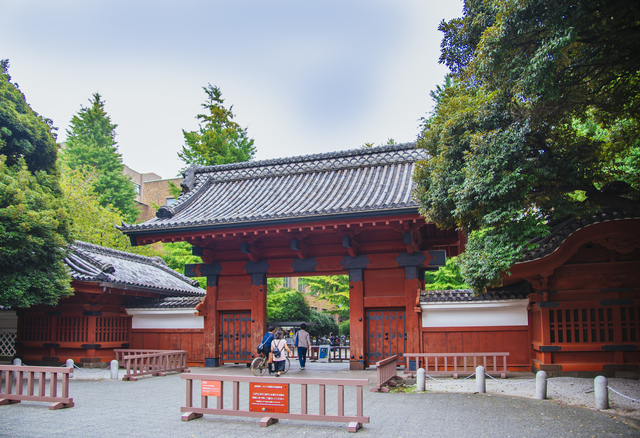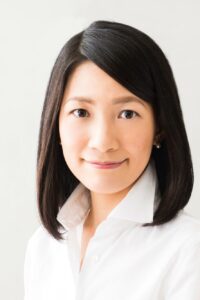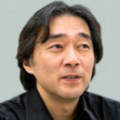What Happened Next for “Tokyo University Women” —their experiences of “Tokyo University Men” and the barriers facing them in a male-run society

Akamon Gate (Goshuden-mon of the former Maeda Clan’s Residence, build in 1827) is the symbol of University of Tokyo
Photo: ninguru/PIXTA
It is seventy-five years since women first entered the University of Tokyo. The hidden struggles behind impressive careers.
Akiyama Chika, journalist

Akiyama Chika
“I feel like I’ve been driven to this point…”
Wearing a satin blouse with a colorful pattern, the woman falters as she speaks, and huge tears trickle down.
Her name is Yamaguchi Mayu. One of her jobs is working as a media commentator, but while a student in the University of Tokyo’s (Tokyo University below) Faculty of Law, Yamaguchi passed both the national bar examination and the National Civil Service (Level 1) exam (formerly, National Civil Service Comprehensive Service exam). When she graduated in 2006, she gained top marks in all subjects and was awarded the University of Tokyo President’s Award. After working as a civil servant in the Ministry of Finance, she became a lawyer and worked at a well-known legal office. She then studied abroad at Harvard Law School and completed a Ph.D. at Tokyo University’s graduate school, making her an elite member of the elite.
It was while recalling the time when she quit the legal office that Yamaguchi wept.
“Although I’ve never had the experience of being overwhelmingly good at study, I went out into society with the image of myself as being exceptionally able. At the Ministry of Finance, and as a lawyer too, I couldn’t accept not being as able as I wanted. I criticized myself – I’m bad… I’m no good – and I got tired. Thinking back, it was simply about the work suiting me or not suiting me, and I should have looked for a new way forward.”
Yamaguchi says her boyfriend at the time told her, “You are good at study but not good at work,” and “No other guy would want to date the type of girl who gets top marks at Tokyo University, you know.”
She couldn’t reveal her work worries to that boyfriend.
“I was considering marrying him, and because he didn’t acknowledge me, I wondered what I’d do if he realized that my work wasn’t going well. Even though he wasn’t confident himself, I felt like he was putting me down while I was in a poor mental state… my feelings of self-worth were being eroded…”
Listening to her, I was reminded of a celebratory address that sparked discussion by Ueno Chizuko, Professor Emeritus of University of Tokyo. She said these words at the 2019 Tokyo University entrance ceremony.
“A man’s value correlates with his exam results but a woman’s value does not correlate with her exam results.”
“Girls are expected to be kawaii since they are young. Well, what values does “kawaii” have? It includes being loved, being chosen, and being protected by giving assurances of not intimidating men.…” And the address continued.
The work worries once experienced by Yamaguchi are the kind that tend to be common to both male and female Tokyo University students. But surely it was a “twist” particular to women, as highlighted by Ueno, that created the discord with her boyfriend?
It was in 1946 that women became able to enter Tokyo University. But between then and 2020, the number of female students has never accounted for more than 20%. This year, news was made when the proportion of women passing the entrance exam first reached 21.1%, but 45.5% of students across all Japan’s universities are women, so the reality is that it’s still a low number compared to other universities.
In an attempt to study this female minority of Tokyo University graduates I have been writing a series of articles for Bungei Shunju Digital called “What Happened Next of Tokyo University Women.” “Tokyo University Women” (Todai joshi) is a general term typically used within the university itself for female students. So far, I’ve spoken with ten Tokyo University alumni aged in their 20s to 90s.
I didn’t only want to know how these individuals lived their lives. I wanted to know if these talented women who had entered Japan’s top university had, in their subsequent lives, collided with a “wall” that was impossible to tear down by their efforts as women. If so, I wanted to know what that “wall” was. At first I imagined that the talk would be of something like a “glass ceiling” that prevented advancement in the workplace. But as I continued my research, it emerged that it was not some hard-to-see glass barrier or high ceiling, but rather obstacles much closer to the ground that were making things hard for these women.
A “wall” made of new material
It is seventy-five years since the first “Tokyo University Women,” but the wall that obstructs their active participation is made of a new material. That happened in 1986 when the Equal Employment Opportunity Law was put into effect. Before then, the biggest wall in the way of women was discrimination when seeking employment.
Akamatsu Ryoko (Faculty of Law, 1953) was the first female Director-General of the Women’s Bureau at the Ministry of Labour (currently Ministry of Health, Labour and Welfare) and is known as “the mother of the equal employment law.” She entered Tokyo University five years after it first opened its doors to women. She remembers as follows.
“Actually, the male students were kind. There were only four women among 800 students (in the Faculty of Law) so of course we stood out. So I went out into society thinking that all men are kind, but that’s not the case, is it?”
Since at the time it was usual for the private company hiring standards for men and women to be different, Akamatsu sought to become a national civil servant, passing the top 6th level exam (currently Comprehensive Service). Yet the Ministry of Labour was the only one of Japan’s ministries and government offices that would employ a woman. Nevertheless, she says that from the start she saw a certain amount of possible “advancement.”
“I and others thought there might be a fixed course for women. Both the bureau director and the section chief of the Women and Minor’s Bureau were women, so I thought that being bureau director there was the endpoint.”
Fueled by her own frustration, Akamatsu did all she could to create a law that would remove discrimination against women in the workplace.
Thinking “So, this is discrimination!” during job-hunting
Kurisaki Yoshiko (College of Arts and Sciences, 1978) is of a generation that went out into society before the Equal Employment Opportunity Law. She didn’t mind about there not being women’s toilets in the buildings on the Tokyo University Komaba Campus, but she said that she first got the real feeling “So, this is discrimination!” during job-hunting. When she tried to visit prospective companies there were almost none that were seeking female university graduates.
But Kurisaki pushed her way through and entered Nippon Telegraph and Telephone Public Corporation (currently NTT). Of 330 graduates recruited for the head office, three were women. Her fellow female Tokyo University graduates did things such as go on to graduate studies and become researchers or take jobs at department stores. One friend who tried for a major trading company had to accept a work role in which she provided support to men.
After entering the company, Kurisaki was the first female employee to be transferred to a regional office after being recruited by the HQ. In the first place, employment of women had ceased during the high growth period, and she says that just because she was a women recruited by the HQ, at first people inside and outside the company looked at her strangely as if she was a panda with black and white patches reversed. In 1989 Kurisaki joined the OECD and then changed job to work for a multinational company. Why? Kurisaki explains.
“Back then, when I expressed my opinion during NTT internal meetings, I was told off by my boss: ‘Your personality is too strong. Think about letting others speak.’ It felt like I was expending energy making myself small.”
There’s an overlap with the recent controversial derogatory comments towards women by Mori Yoshiro, the former chair of the Tokyo Organizing Committee of the Olympic and Paralympic Games. But unlike current times where Mori was forced to resign, during Kurisaki’s time those views were “common sense” in Japan. She chose “global common sense” and left Japan.
“I want to work and have children”
But what happened after the Equal Employment Opportunity Law?
This exchange occurred during my interviews with Akamatsu. When I asked Akamatsu whether workplace discrimination still remains that means women have to take a different path to men, she looked doubtful.
“I don’t think there’s anything women can’t overcome if they try hard. It’s not easy for individuals to change the system through their own efforts, but these days there’s a proper system.”
For sure, since the Equal Employment Opportunity Law, Tokyo Women, and other women too, have seen accelerated active participation in society. But something comes before the system and obstructs women. And that is social attitudes. There is a deeply rooted attitude that for women to continue working they must sacrifice their personal lives.
It was about fifteen years ago when I worked as a journalist in a regional bureau that a younger female employee who graduated from the Tokyo University Faculty of Law joined the company. One time her boss and some seniors in the company happened to see that she’d jotted down “I want to work, but I also want to have children” in her notebook, and they made fun of her. I think it was because she was still learning the ropes, but male employees about the same age had wives and children. She laughed herself, but probably she was hurt inside. Within a few years she married a man who had also graduated from Tokyo University, quit her job, and became a housewife.
When I told Akamatsu this anecdote, she nodded and said, “That kind of thing still happens, doesn’t it?”
In organizations where women are an overwhelming minority, it is absurdly difficult for them to speak out.
Nakano Nobuko (Faculty of Engineering, 1998) gained a master’s degree from the Tokyo University School of Engineering, then a master’s from the Medical Science Graduate Program, and then a Ph.D. in neuromedicine. But she confesses that she “gradually lost her desire to live her life in the academic world.” I asked her whether there were times as a woman that she felt unacknowledged, and she replied, “Yes, lots.” “No matter how many papers a woman writes, people say things such as, ‘She’s given up her proper role as a woman,’ or ‘I’ve seen her with that professor. It’s just favoritism.’ Even if she’s able, she’s asked, ‘Have you had children yet?” Do men get asked that?”
She says there was “more than enough” of such sexual harassment. And touching too.
“For example, if I was hugged by a professor and I said, ‘Stop it,” I’d be less valued and less likely to receive scholarship funds. So next time he hugged me, I’d say, “Oh, you must be tired,” and gently remove his arms. I think Tokyo University is already different and that professor is already gone.”
Gradually, Nakano could only think of the research world as an “outdated symbol of the male principle.” She says that, no matter how hard she tried, all she could do was assimilate to a male society and function as an “honorary man.”
Toyota Mayuko (Faculty of Law, 1997) is of the same generation as Nakano and a former member of the Lower House. She gained top class results at the Oin Junior and Senior High School, the only girls’ high school to be continually among the top ten schools with the largest number of successful Tokyo University applicants. After graduating from Tokyo University, she joined the Ministry of Health and Welfare (now the Ministry of Health, Labour and Welfare.) She was the only woman among the fourteen people to join the ministry that year.
Toyota says that the time Akamatsu joined the Ministry of Health, Labour and Welfare, some time before she did, was one of “exclusion” for women, but that her own time was of “excessive adaptation.” But what is “excessive adaptation”?
“Having been ‘allowed to join an exclusively male organization,’ we excessively adapted to the logic of a male society, and it was completely unacceptable for us as women to cause trouble to other people. We thought that we’d only be accepted once we worked many times harder than men, and of course we worked 300 hours overtime a month and sometimes slept at the office like men. During afterwork drinks, sexual harassment occurred, but we thought it bad to cause trouble and let it pass. Thinking about it now, it really was excessive adaptation.”
Toyota studied public health at Harvard University as a government-funded overseas student, then worked as a diplomat at the WHO during the 2009 H1N1 influenza pandemic. She then switched to being a politician, was involved in controversy over rash remarks to a secretary, fell from grace, then came into the spotlight again during the COVID-19 pandemic as an expert on public health and political administration.
Nakano, meanwhile, met her husband during the first half of her 30s, gave up her research work, and used her scientific knowledge to write popular books on science and work as a media commentator. Having carved out her own path after taking her knowledge out of the laboratory, Nakano says that she is satisfied.
“I think that quite a lot more women graduates of Tokyo University have now started to think that there is no more point in trying to further their careers within a hierarchy decided by men,” she says.
“Cursed” by their own mothers
Nakano says that she only finally started to have confidence in herself after the age of 37.
“I think that many women have a vague unease up to about that age,” she says. “It’s because women are ‘cursed’ by being continually told that they’ll only be popular when they are young. The attitude that their value will gradually decline is implanted in them.”
And not just Nakano. Many other women with glittering careers who graduated from Tokyo University told me the same: that they didn’t have confidence until they reached a certain age.
But who put this “curse” on them? When I asked them, two large presences in their lives emerged.
One was their mothers. And in those cases there were two types.
First, there was the type of mother who didn’t approve of their daughter going to Tokyo University. In Nakano’s case, from when she was young her mother frowned on her being good at study, telling her that “Even with good academic qualifications, a girl can’t get married.” Other woman explained that her mother opposed her going to Tokyo University and said, “It’s better not to go somewhere like Tokyo University, because if you do you won’t be able to find a husband.”
On the other hand, there are mothers who passed on their own regrets to their daughters. Miwa Fusako (Faculty of Law, 2002) explains as follows.
“My mother wanted to have her daughter do what she would have wanted to do if she were born in a later generation. So she strongly believed I should get good academic qualifications. I really felt that pressure. But I also thought that I should go to Tokyo University so that I wouldn’t have to do as I was told by my mother forever.”
I was brought up being told this by her mother. “Girls can get by in life if people think they are cute, but you aren’t cute so get by on your own.” That “curse” was lifted around the age of 25.
Miwa says, “Not just Tokyo University Women… When I talk to women of my age with good academic records, there are a certain number of similar people.” For sure, just as the term “poison parents” (parents who exert a bad influence on their children) has become popular, there are probably more than a few people who bear parental conflicts, and not just among women who have graduated from Tokyo University.
However, there is one more powerful “curse” inflicting presence in the lives of Tokyo University Women. And that is Tokyo University Men.
Clubs that don’t accept Tokyo University Women
“For me the strongly rooted concept of male chauvinism that remained at Tokyo University was a kind of wall, I think.”
So wrote Arare in an email (not her real name) (Faculty of Engineering, 2008). Arare is the online name of a female employee of a foreign company in Japan who also writes a popular blog on marriage hunting. She’s a woman with an air of sophistication and tells me she worked part time at a popular designer goods store when a university student. However, she herself says that “I have no confidence in my appeal as a woman.”
In her blog, Arare delves into why she is not confident. “Did my parents bring me up badly? Was there some trauma? After thinking and thinking I arrived at this thought—that it was the tennis club I spent time at while a student,” she says.
At the time Arare attended Tokyo University there were said to be 100 tennis clubs. But of those, the university had only three that Tokyo University Women were able to join (now reduced to two). Apart from those three, all the rest were clubs made up of Tokyo University men and women from women’s universities.
Arare remembers the shock she got when she joined one of those few clubs in the university.
“At parties, the women were first ranked according to age. The top group were called “ichi-jo” (number one women) and were the youngest first-year university students. The ichi-jo were positioned around the strongest male tennis players. They would pour drinks with unpracticed hands and call out in a singing voice, “Drink, drink, drink…. pleeeease.” They’d put their hands together and beg cutely so the players would feel good as they drank. It was just like a hostess bar.”
Arare felt humiliated and so that she could avoid pouring drinks she took on the persona of someone who made others laugh with self-deprecating jokes.” From around that time, she developed a sense that she wasn’t good at expressing herself as a woman.
The world where male chauvinism is felt most
This kind of culture isn’t limited to particular clubs.
Miwa, who I mentioned earlier, recalls that the athletics club she belonged to was “the sphere where I most felt male chauvinism.” The contents of practice were more or less the same for men and women, but the women had to race last, and when they recorded the men’s times, hardly anyone ever said thank you. When there was a party for club members there was a tacit understanding that the female Tokyo University club members and the manager of the women’s university team would be in the kitchen.
“Boys who got into Tokyo University and were good at running —in other words the strongest of the strong—were a group that felt all powerful. At the time I thought that people who’d won their way to the top wouldn’t look at those who hadn’t.”
Miyashita Satomi (Faculty of Education, 2007, not her real name), who is studying for a Ph.D. at Tokyo University after working for a company, was also a member of the athletics club, but she recalls how the women were not equal to the men, and says, “However you looked at it, our role was not to threaten the men.” Something she mentions that left a particular impression was how the managers from the women’s university teams were treated.
“I think that some of the men looked down on ‘those’ people as if they were stupid. In fact, one of the managers told me that that was how she felt. Various comments were made on their appearance, and they were summoned when the men wanted and had to give massages.”
These kind of things weren’t regarded as problematic within the club, she said.
Seven in ten husbands are Tokyo University graduates
Yet despite their unpleasant memories at Tokyo University, it is said that seven in ten female graduates marry male graduates from the university. There are probably various reasons for this, but the reasons given by the women interviewed for this article were the environmental factor that they are surrounded by Tokyo graduates before and after graduation, and the desire to “marry someone similar.” Also, here too, multiple people pointed to the “influence of their mother.” In other words, they sensed their mother’s desire for them to choose a man with an excellent academic record.
However, it is not necessarily possible to reproduce a structure similar to student life within the home.
Having graduated, Miwa still attends alumni meetings of the athletics club, but the attendees are all men. “Most of the Tokyo University Women are married to Tokyo University men, and men of the elite are busy, so I think those wives don’t have time to do anything other than work and raise children,” she says. (Besides the fact that the elite husbands still do things other than work and raise children.)
Arare, who lost self-confidence through her experiences as a student, also married a man who graduated from Tokyo University. She says that right now she is struggling hard with communication as a couple.
“He went to a famous middle school and high school, Tokyo University, and then a major company. It’s a completely typical elite course, so he’s probably never been scolded or experienced setbacks. He’s the kind of person who was forgiven anything as long as he is good at study, so it seems he can’t tolerate me finding faults or pointing things out.
Needless to say, not all men from Tokyo University (i.e., men who graduate from Tokyo University) have a tendency towards male chauvinism. Putting together comments from the women I spoke to, the character of men varies quite a lot depending on factors such as their study subjects on entering the university (arts 1-3 or science 1-3), whether their high school was single-sex or coed (public or private), or whether they tend to arts or sports.
Still, the issue can’t be dismissed as one of just individuals. In 2016 there was an incident when five male university students were arrested on suspicion of indecently assaulting a female student from another university. A novel by Himeno Kaoruko, “Because She’s Stupid,” was inspired by this incident. And in 2019, a series of scandals were reported involving two male medical students popular from a TV quiz show, abortions, and a lack of good faith towards women. It’s probably not just novelists who associate this with the “strongly rooted lingering concept of male chauvinism at Tokyo University” that Arare speaks of.
I came to understand something as I did more and more research. The designation Tokyo University Women commonly used at the university is a name assigned from the male perspective.
Kitamura Sae (College of Arts and Sciences, 2006), an Associate Professor at the Faculty of Humanities, Musashi University, analyzes as follows the reason for this rooted culture among Tokyo University students of partitioning off female students.
“It was after World War II that women became able to enter the university. I think it was because originally it was a masculine culture and the number of women was still few,” she says. “There are Tokyo University Women, so you’d think the term ‘Tokyo University Men’ could exist. That it hasn’t to date is because at Tokyo University men are the obvious and default type of human.”
The “grating” term “Tokyo University Women”
One ends up wondering, “If men are the default, what does that make women?” During my research, one woman described women as “second-class Tokyo University students.” Another comment was that Tokyo University Women is a derogatory term to separate them from Tokyo University Students.
“The words ‘Tokyo University Women’ have a grating tone to me and somehow make me sad when I hear them.”
So says Fujita Yu (Faculty of Education, 2020), who graduated from Tokyo University last year and is employed at a publishing company.
Right after entering the university, Fujita had a shocking experience when a club she was interested in told her, “Sorry, we don’t allow Tokyo University Women to join.” She joined a different club for Tokyo University students and forgot about the experience for a while, but when she came across Ueno’s celebratory address from the 2019 entrance ceremony she realized that “it was discrimination.” Having developed an awareness of the issue, Fujita summarized her ideas in her graduation thesis, “What’s happening in Tokyo University inter-university clubs? —The structural disparity maintained by ‘No Tokyo University Women.’” The “No Tokyo University Women” inter-university clubs are composed only of men from Tokyo University and women from other Women’s Universities, and many are sports clubs. Fujita interviewed seventeen members of Tokyo University inter-university clubs and nine members of clubs within the university. She also conducted participant observation of one inter-university tennis club for two months.
During that, a man mentioned the words “the rules of male chauvinism.” Things such as making meals, pouring drinks, opening and closing doors of restaurants club members go to after practice, and everything connected with food were the role of women.
Meanwhile, when it came to running the club, only Tokyo University men could become the main officials, meaning it was “run by men.” Members of multiple circles said that it was standard practice for Tokyo University men to make fun of and denigrate women from other universities during impromptu quiz contests.
Many said that the reason for Tokyo University Women being excluded was “tradition.” But the true motive was clear—it was because it would become more difficult for the men to hold actual power if Tokyo University Women joined the clubs.
Looking back at her research, Fujita says this.
“Most of the men didn’t actively intend to discriminate against women, but it suited them to follow tradition so they didn’t cause any trouble. It simply felt scary to think that these students would become bureaucrats and take on high-level jobs, and that they would become the kind of members of society who perpetuate the vested interests of organizations.”
On the other hand, she also had some doubts about the attitude of the women, she says.
“Many of the Tokyo University Women didn’t get involved with the clubs due a preconceived notion that they ‘didn’t need that kind of dating club like group.’ But surely, if it was racial discrimination, for example, wouldn’t that become a huge issue? Some women from other universities joined Tokyo University clubs because they wanted to make friends outside their own universities. But when they talked with Tokyo University Women for the first time, relations between those women were disrupted by a structure created by men. And because they all became “women of discernment,” the traditions didn’t change, I think.”
This might be painfully true to the older generation, but Tokyo University Women pioneer Akamatsu says that women’s liberation is a “long line” that includes her predecessors, and which moves forward slowly. Hearing Fujita declare that “I don’t want to put up with inequality” makes me think that the line has extended to a new generation.
Tokyo University men taking pivotal roles in society
Ueno Chizuko, Professor Emeritus of University of Tokyo, who is at the top of her field of women’s studies and has taught at Tokyo University for a long time, highly praises Fujita’s thesis as having brought to light a structure of discrimination against Tokyo University Women by Tokyo University men. “It was a shock that this is happening right now. These men are Mori Yoshihiro’s waiting in the wings.”
If these men go out into society having strengthened their old-fashioned gender outlook at Tokyo University, that will lead to the preservation of a male-chauvinist society. That’s because, as the elite, most of them will take on pivotal roles in society.
But are they really fortunate in that regard?
Yamaguchi, who features at the beginning of this article, has recently come to think that Tokyo University men should be “felt sorry for.”
“They have to bear an even sturdier yoke than us—that things have to be this way. It’s as if they always have to be better than women, protect them and lead them. There’s no flexibility in place so that if where they are now is no good, they can open the next door.” If there was a “What happens next for Tokyo University Men,” I think it would be a uniform story and not read very much.
Recently, Yamaguchi has finally abandoned perfectionism and become able to accept her existence as someone who stepped off the course of the elite. The traces of tears have disappeared from her face, and her expression is bright.
Translated from “Todai Joshi no Sorekara—Kanojo tatchi ga taikanshita ‘Todai danshi’ to ‘Otoko shakai’ no kabe (What Happened Next for “Tokyo University Women”—their experiences of “Tokyo University Men” and the barriers facing them in a male-run society),” Bungeishunju, May 2021, pp. 254-263. (Courtesy of Bungeishunju, Ltd.) [August 2021].
Keywords
- Akiyama Chika
- journalist
- Ueno Chizuko
- University of Tokyo
- Todai joshi
- Tokyo University Women
- Equal Employment Opportunity Law
- university clubs
- tradition
- discrimination
- sexual harassment
- male chauvinism
- Himeno Kaoruko
- “Because She’s Stupid”




